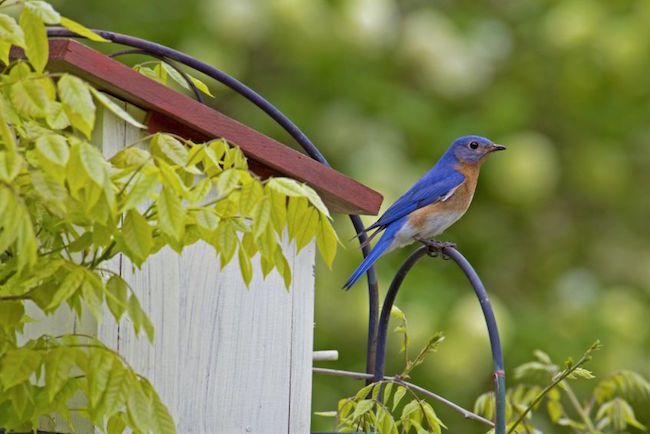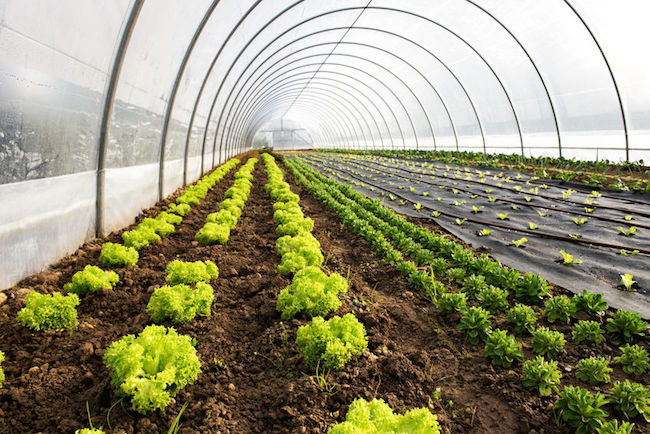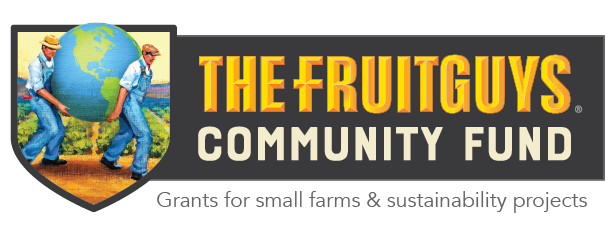
It’s great to see the variety of of sustainability projects being focused on by our 2018 grant applicants. These projects are so important and by supporting The FruitGuys Community Fund you help small farms learn and use sustainable methods to provide their communities with healthy, local, and organic food. It doesn’t have to stop there. You can also help by incorporating some of these goals into your own life. You don’t have to own or work on a farm to implement many of these sustainability projects.
Water Conservation
When it comes to water no impact is too small. Using less water in your home and garden is a great goal to strive for. In the home you can do simple things like taking quick showers. You can also tackle bigger projects like installing a greywater system to reuse water from the sink, shower, and washing machine to water fruit trees or lawn areas. In the garden, one of the best ways to save water is install drip irrigation which delivers water directly to each plant and reduces evaporation. You can also add mulch around all your plants. Mulch plays several critical roles but one of its most important features is that it helps hold in moisture.
To preserve water quality you should leave large buffers between where you mow, garden, or pasture livestock and any body of water whether it’s the ocean or a small stream. If you have a buffer area like this that’s currently mowed it’s a good idea to plant or let native perennials grow. You should also avoid using chemical fertilizers which often run off and cause algae blooms in nearby water systems. Lastly you should try to prevent erosion wherever possible. If you want to grow food on sloped areas you should either terrace it or grow perennials which will help hold the soil in place.
Support Beneficial Insects & Animals
Beneficial insects are those insects that help us achieve our gardening goals. There’s all sorts of predatory insects like wasps and beetles that feed on the caterpillars and aphids that love to eat garden plants. There’s also many native pollinators like bumblebees, masonry bees, butterflies, moths and even some flies that help make your garden productive. While every species has different requirements a few basic ways to entice these to your garden include building insect hotels, mulching your garden, leaving standing dead matter in the garden which insects overwinter in, and planting native wildflowers and perennials.
Animals like owls, birds, and bats also feed on garden pests both of the insect and rodent variety. Hummingbirds of course, also help with pollination. To encourage them in your garden you can add bird, bat, and owl houses as well as bird baths. You can also plant a garden with varied heights and let larger plants, shrubs, and trees grow near your garden which will gives them places to land.
Your local agricultural extension agency or wildlife center may know what helpful species you have in your area and how to encourage them to visit your property.
Switch to Organic Methods of Pest & Weed Control
This project goes hand in hand with the first two. By using mulch and encouraging beneficial insects and animals you’ll already have vastly cut down your pest and weed problems. If you’re still having a tough time there’s a variety of methods you can try rather than resorting to chemicals.
If you’re really struggling keeping pests off a certain crop try using cover cloth. By covering your plants all season the pests will never have a chance to get to them. Alternatively you can identify your pest and do some research on organic sprays or for larger pests grab a pair of gloves and simply pick them off into a bucket of soapy water.
To help keep weeds down avoid letting any go to seed. Keeping up with the weeds from year to year will decrease the amount that grow. You should also space plants so that you can avoid hand weeding. Create beds that will work with a stirrup or wheel hoe which will vastly cut down on your time spent weeding. Lastly, grow plants that will help shade out weeds on their own. For example, to avoid weed growth under sunflowers, corn, or other tall crops, plant vining crops like squash, watermelon, or cucumbers there instead.
Lastly, keep your plants healthy. Vigorous, well tended plants are much better able to withstand pest and weed pressure should you run into problems or fall behind with your garden chores.
Use Season Extension

Season extension can help you grow more of your own food. To shelter your crops from cool weather you don’t need a large high tunnel or big fancy green house. You can extend your season by growing things in cold frames or low tunnels both of which are easy and cheap to set up and care for. There’s many DIY plans available. They’re also excellent because most can be moved each season as you rotate your crops and can be made to any size you desire whether you have a huge rural lot to work with or just an apartment balcony.
Season extension is generally thought of as a fall, winter, and spring activity, providing crops shelter from any intense cold and frosts. However, you can also use season extension to shelter cool season crops from from the intense heat of summer. By utilizing shade cloth or even just shady areas of your garden you can grow crops like lettuce and spinach later in the year when they normally don’t tolerate the summer heat.
Improve Your Soil Health Organically
Making your own compost is one of the easiest ways to improve your soil health and reduce your waste. Making compost is as simple as mixing nitrogen and carbon rich materials which break down together as long as you keep them moist. Nitrogen rich material or green material includes things like kitchen scraps, green grass clippings, or weeds. Carbon rich material or brown material includes things like leaf litter, straw, or old hay. You should aim for a 30 to 1 ratio of carbon to nitrogen rich materials.
Another way to improve your soil health is to go no-till. Traditionally gardens were either plowed or tilled each year. Today we know that these processes are actually harmful to soil health. Turning the soil over each year kills many beneficial insects and microbes. Plus the equipment used in these processes typically uses fossil fuel and compacts the soil over time.
If you’d like to see more small farms taking sustainable initiatives like these please consider donating to The FruitGuys Community Fund. 100% of each donation goes to a small sustainable farms like our 2018 applicants. With your help they strive to make their communities a better, healthier place for people and the environment.




